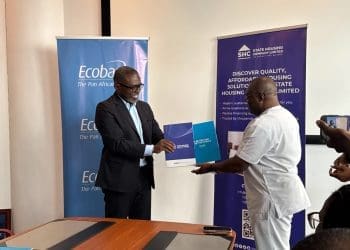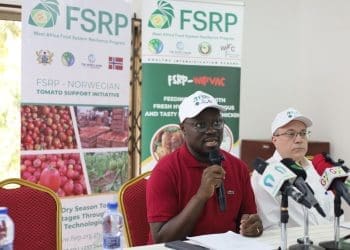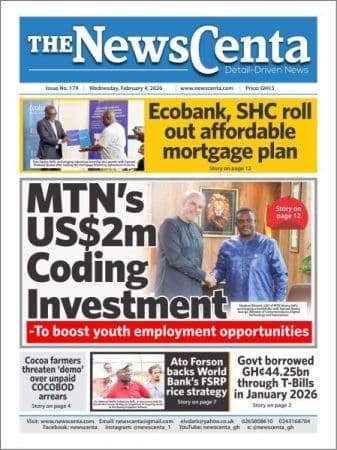The Minister for Finance, Dr. Cassiel Ato Forson, has officially inaugurated the Governing Board of the newly established Ghana Gold Board (GoldBod), hailing the move as a cornerstone in President John Dramani Mahama’s strategy to reset the nation’s economy and unlock the full potential of its gold resources.
Speaking at the ceremony, Dr. Forson congratulated the Board members on their appointment and commended the months of dedicated work that culminated in the creation of the GoldBod.
The initiative began with the inauguration of a Technical Committee on January 27, 2025, which was tasked with crafting a legal and operational framework for the new agency.
The committee delivered on its mandate efficiently, leading to the passage of the GoldBod Bill by Parliament and its subsequent assent by the President.
A new era for Ghana’s gold sector
Describing the GoldBod as a flagship economic revitalisation initiative, the Finance Minister emphasised its critical role in achieving currency stability and maximising the country’s gold revenues. Despite being Africa’s top gold producer, Ghana has historically failed to fully capitalise on its gold wealth, often facing environmental costs without corresponding economic benefits.
“The Ghanaian economy has not realised the full benefit of our gold resources,” Dr. Forson noted. “It is time for Ghana to expand beyond royalties and taxes by harnessing the entire value chain—from extraction to refining, value addition, and marketing.”
The GoldBod is expected to become a centralised and specialised agency responsible for managing the marketing of Ghana’s gold, especially from the small-scale mining sector. It will implement a program aimed at formalising gold trading, improving traceability, and enhancing the international reputation of Ghanaian gold.
Reforming a Fragmented Sector
Dr. Forson highlighted the chaotic state of Ghana’s gold purchasing landscape prior to the formation of the GoldBod. Previously, institutions such as the Precious Minerals Marketing Company (PMMC), the Bank of Ghana, and the Minerals Income Investment Fund (MIIF), as well as numerous private aggregators and individuals, all played overlapping roles in gold trading and exports.
This unregulated structure, he said, led to rampant smuggling and substantial losses in foreign exchange earnings.
“Today, that era is over,” the Minister declared. “The Ghana GoldBod is now the sole buyer and assayer of gold from the small-scale mining sector and holds the exclusive mandate to license gold traders.”
Strengthening the cedi and the economy
Dr. Forson credited the early activities of the GoldBod with contributing to a dramatic turnaround in the performance of the Ghana cedi, which has appreciated 16.7% against the US dollar so far in 2025, making it the best-performing currency globally this year. This is in sharp contrast to a 13.4% depreciation during the same period in 2024.
This reversal, according to the minister, is the result of coordinated monetary and fiscal policies, strong foreign exchange inflows from gold, cocoa, and remittances, and a favorable global financial climate. He noted that Ghana’s foreign exchange reserves at the Bank of Ghana have hit record highs, surpassing targets under the IMF-supported economic programme ahead of schedule.
“This underscores the sustainability of the cedi’s performance,” Dr. Forson stated. “The GoldBod will further strengthen this trajectory and reshape how Ghana accumulates foreign reserves and manages its currency in the long term.”
A call to action
In concluding his address, the Finance Minister urged the newly inaugurated Board to remain committed to supporting this economic transformation.
“Let us help propel His Excellency President John Dramani Mahama’s ongoing reset of Ghana’s economy and deliver lasting economic prosperity for all Ghanaians,” he said.
The inauguration of the GoldBod represents a pivotal moment in Ghana’s economic journey, setting the stage for a more sustainable and impactful utilisation of its gold resources in the years to come.
Members on the board are:
1. Kojo Fynn – Chairperson
2. Samuel Gyamfi – Ag. CEO of the Gold Board/Member
3. Emmanuel Armah Kofi Buah – MP, Minister for Lands and Natural Resources/Member
The Minister responsible for Mines or a representative of the Minister responsible for Mines, not below the rank of a Director, nominated by the Minister responsible for Mines.
4. Thomas Nyarko Ampem—MP, Deputy Minister for Finance / Member
The Minister responsible for finance or a representative of the Minister responsible for Finance, not below the rank of a Director, nominated by the minister responsible for Finance.
5. Dr. Johnson Asiama – Governor, Bank of Ghana / Member
The Governor of the Bank of Ghana or a representative of the Governor of the Bank of Ghana, not below the rank of a Director, nominated by the Governor of the Bank of Ghana.
6. Nelson Ahedor – Representative, Minerals Commission/Member
One representative of the Minerals Commission, not below the rank of a director, nominated by the chief executive of the Minerals Commission.
7. Christopher Opoku Nyarko – Representative, Ghana Chamber of Mines/Member
One representative of the large-scale mining firms, nominated by the Ghana Chamber of Mines.
8. Godwin Nichelson Armah – Representative, Ghana Small Scale Miners Association/Member
One representative of the small-scale miners was nominated by the association representing the interests of small-scale miners.
9. Kwaku Effah Asuahene—Representative, Chamber of Bullion Traders/Member
Gold service providers nominated by the Minister.
10. Shaibu Mahama – MP for Daboya/Mankarigu, President’s Nominee/Member
11. Dr. Abdul Baasit Aziz-Bamba – Senior Lecturer, UG School of Law, President’s Nominee/Member
12. Ms. Marrietta Brew Appiah-Oppong – Legal Counsel to the President, President’s Nominee/Member
13. Nana Ama Amissah III – Paramount Queen Mother, Mankessim Traditional Area, President’s Nominee/Member















